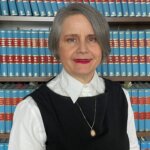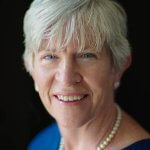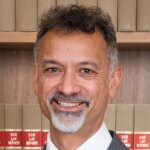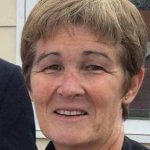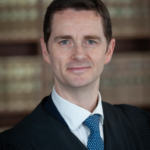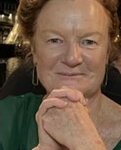About
Who we are
The Diversity and Inclusion Justice Network (the Network) is the formal network of Diversity and Inclusion Advocates across Australia.
The Network is the primary mechanism through which Diversity and Inclusion Advocates receive resources and support from the Judicial Council on Diversity and Inclusion (the JCDI), and provide feedback back to the JCDI on issues experienced within their jurisdiction.
The Network primarily focuses on recommendations for adapting court and tribunal policies and practice to enhance their responsiveness to Australia’s diverse communities, acknowledging that enabling these considerations does not provide advantage, but rather provides an assurance that all Australians are treated equally before the law and have access to justice.
The Network is composed of Diversity and Inclusion Advocates from each level of court and tribunal in every state and territory in Australia, who have been nominated by their head of jurisdiction to be responsible for issues relating to diversity and inclusion and access to justice in their jurisdiction. The Network reports periodically to the JCDI to provide updates on implementation initiatives, and issues arising, for the consideration of the JCDI.
Court and Tribunal Diversity and Inclusion Advocates
Judge Soulio was appointed to the District Court of South Australia in 2006. His Honour has been the Chair of the Migrant Resource Centre of South Australia since 2003. He was Chair of the Australian Multicultural Council between 2011 and 2014 and in that capacity was a member of the national Access and Equity Inquiry Panel which conducted an inquiry into the availability and accessibility of government services to people from culturally diverse backgrounds. Between 2011 and 2014 he also served as a member of the National Anti-Racism Partnership Strategy. Judge Soulio was previously Deputy Chair of the Australian Multicultural Advisory Council, which provided advice to government on multicultural policy, until the completion of the Advisory Council’s term in 2011.
Justice Berman was appointed to the Family Court of Australia on 18 July 2013. Prior to this, His Honour practised as a barrister in the area of family law and de facto relationships. Justice Berman was appointed Senior Counsel in 2010.
Judge Balic was appointed to the Magistrates’ Court of Queensland in 2022. She finished law school in 2005, and was admitted in 2006, after which she commenced work with the Office of the Director of Public Prosecutions (ODPP). In 2008, Magistrate Balic became counsel and a prosecutor with the ODPP. In her prosecutorial career, she prosecuted child sex offences, property, and other crimes. In the last five years of her work for the ODPP, Magistrate Balic prosecuted murders and large drug trafficking matters and, for two years, appeared exclusively for the DPP in the Court of Appeal. Magistrate Balic has also appeared in the High Court of Australia.
Magistrate Bali is an ambassador for the Women Lawyers’ Association and is a member of the Zonta Club Brisbane. She came to Australia as a refugee in 1996 from war torn Bosnia with no English proficiency.
Born in Singapore of Indian heritage Jay Pandya is a graduate of Adelaide University Law School. She pursued criminal defence work in Adelaide before undertaking an internship at the District Attorney’s Office in Los Angeles. On returning to Adelaide she accepted an offer at the Office of the Director of Public Prosecutions where she worked as a prosecutor for almost two decades, prior to being appointed to the Magistracy in 2011.
As a Magistrate, she has taken a special interest in the area of domestic violence and during 2018-2020 was the Manager of the Family Violence Court. She is particularly aware of the scourge of domestic violence within our community and has sought to develop improved court outcomes by liaison within the judiciary, information sharing and reviewing administrative processes. She regularly meets with police, the legal fraternity, support services for victims and other relevant agencies. She has undertaken circuits to remote Indigenous communities and other rural regions. She has presented to the judiciary at all levels and other stakeholders extensively locally and interstate.
She is a trained facilitator with the National Judicial College of Australia and is the co-chair of their National Family Violence Program. She is a committee member of the Australian Association of Women Judges and the chair of their Diversity sub-committee. She is also the President of the Magistrates’ Association of South Australia. She is currently the Regional Manager of the Port Adelaide Magistrates Court.
Beyond the office, she is the mother of four children aged 16 to 24, three of whom are daughters. Understanding and recognising the role of women in justice is challenging but vital and she is committed to contributing what she can.
Judge Blake was appointed to the Federal Circuit Court of Australia on 30 January 2019.
Prior to his appointment, Judge Blake was a Partner in large law firms where he practised in the areas of Employment, Discrimination, Workplace Safety and Industrial Law matters.
His Honour was consistently recognised as a leading practitioner in these areas. He was considered to be a pre-eminent practitioner in Australia by Asia-Pacific Legal 500 in the area of Employment Law. He was year after year recognised as a leading practitioner by Best Lawyers and Doyles Guides.
Since his appointment, Judge Blake hears cases across the jurisdictions of the Federal Circuit Court including employment disputes, migration, family law, bankruptcy and administrative law.
Justice Judith Kelly completed a Bachelor of Arts degree in 1973 and a Diploma of Education in 1976, working as a teacher in Batchelor, in the Northern Territory, from 1977 to 1982. She graduated in Law with honours from the University of Queensland in 1985 and was first admitted as a barrister in Queensland in 1986, then worked as a solicitor in the Northern Territory, becoming a partner of Morris Fletcher and Cross (later Philip & Mitaros, then Clayton Utz). She went to the independent bar, joining William Forster Chambers in Darwin, in 1996. Her practice had a focus on commercial litigation, banking and insolvency with some insurance, construction, admiralty and native title law. She was appointed Senior Counsel in 2008 and a Judge of the Supreme Court of the Northern Territory in 2009.
Magistrate Kahlert was appointed to the Magistrates Court of Queensland in 2020. She commenced practice as a solicitor in 1992 and worked in a general practice until 1998 when she moved to Crown Law. From 2000 she worked as a legal officer with the Queensland Anti-Discrimination Commission, before becoming Registrar of the Anti-Discrimination Tribunal in 2004. In 2008, she was appointed as a Judicial Registrar in the Magistrates Court of Queensland and then an Acting Magistrate in 2014. Magistrate Kahlert has substantial experience in the domestic violence and Childrens Court jurisdictions. She has particular interest in improving access to justice for Indigenous and multicultural communities.
Associate Judge Verity McWilliam was sworn in as the Associate Judge of the Supreme Court of the Australian Capital Territory on 26 June 2017. Her Honour was admitted as a solicitor to the Supreme Court of New South Wales in 2002, and interspersed with her employment as a solicitor, she served as the Associate to Justice Finn in the Appeal Division of the Family Court of Australia, and Justice Beaumont and Justice Madgwick in the Federal Court of Australia.
Her Honour was called to the NSW bar in 2006, where she developed a diverse practice across the areas of commercial/equity, criminal, employment, environmental/planning, public law and torts. Her Honour also lectured variously in public law, federal constitutional law and litigation at the University of NSW from 2010 until 2017, and in public law at the University of Sydney from 2010 to 2012.
Chief Judge Morris was appointed to the Local Court in the Northern Territory in 2010. Prior to that her roles included appointments as Deputy Coroner, Executive Director of Racing, Gaming and Licensing and Deputy CEO of the Department of Justice in the Northern Territory. She was named the NT’s Children’s Lawyer of the Year in 1999 and formerly worked as a barrister and solicitor with the NT Legal Aid Commission, predominantly in crime.
Chief Judge Morris is the Chair of the Board of the NT Legal Aid Commission and maintains positions on, amongst others, the National Domestic Violence Bench Reference Committee and the Courts Technology Committee. As well as degrees in Law and Arts from the University of Sydney, she has a Graduate Certificate in public sector management, is a graduate of the ANZSOG Executive Fellows Program and holds an Executive Certificate in Juvenile Justice and Child Welfare from Georgetown University.
Justice Raper was appointed to the Federal Court in 2022. Prior to her Honour’s appointment, she was a barrister for 17 years practising primarily in employment and industrial disputes, and discrimination and administrative law matters. Her Honour was made Senior Counsel in 2019. Her Honour has been a lecturer at the University of Sydney – Law School for many years, lecturing in the undergraduate and post-graduate programmes primarily in employment and discrimination law. Her Honour together with Chris Ronalds AO SC, has co-authored two editions of the legal text Discrimination Law and Practice (Federation Press).
Justice Marcus Solomon was appointed to the Supreme Court of Western Australia as a Judge of the Court on 4 August 2021.
Justice Solomon graduated with a Bachelor of Laws (Honours) from the University of Western Australia, and commenced his legal career in 1991, where he completed his articles of clerkship at Dwyer Durack. From 1992-2000, Justice Solomon continued at Dwyer Durack, attaining partnership in 1995. From 2000-2006, he worked at Gadens Lawyers, where he was the managing partner and senior property and litigation partner. In September 2006, Justice Solomon joined the Independent Bar. He was appointed Senior Counsel in 2013, undertaking a wide commercial practice until his appointment to the Bench.
Alongside his judicial career, Justice Solomon remains a teacher of Jewish studies and the senior rabbi of the Beit Midrash of WA Inc., an institution dedicated to advanced Jewish studies and Talmudic law for both children and adults. He is the first rabbi to be appointed as a Supreme Court justice in Australia or elsewhere. Justice Solomon is also the Governor of the Carmel School Board, the community school of the Perth Jewish community where he taught Jewish studies prior to completing his legal studies.
Justice Hament Dhanji was appointed as a judge of the Supreme Court of NSW on 20 September 2021.
Justice Dhanji graduated from the University of Sydney with a Bachelor of Laws and Bachelor of Arts degrees before beginning his career as a solicitor for Legal Aid NSW.
He was admitted as a legal practitioner in 1990 and practiced as a solicitor at the Legal Aid Commission of NSW before being called to the Bar in 1997. He took silk in 2010.
He was a barrister in private practice at Forbes Chambers engaged predominantly in criminal defence work. In addition to first instance work across the range of criminal matters including complex corporate crime matters he had a substantial appellate practice. He appeared as lead counsel in a number of important cases in the High Court and appeared in approximately 350 cases in the Court of Criminal Appeal.
In addition to his defence work Justice Dhanji also conducted prosecutions on behalf of the Commonwealth Director of Public Prosecutions, appeared as counsel assisting the coroner and represented clients before the Police Integrity Commission and the NSW Independent Commission Against Corruption.
Justice Wood was appointed to the Supreme Court of Tasmania on 9 November 2009. Prior to this appointment Her Honour served as a Magistrate, and was the first woman appointed to that role in Tasmania. Previously, Justice Wood practised in criminal law as Crown Counsel with the Office of the Director of Public Prosecutions and later in civil litigation as a barrister and solicitor with a Hobart law firm. Her Honour has a longstanding interest in human rights and equal opportunity matters, having served as Chairperson of the Sex Discrimination Tribunal (1996-1999) and the Anti-Discrimination Tribunal (1999-2009).
Judge Nell Skinner was appointed as the President of the Children’s Court of New South Wales and a Judge of the District Court in November 2021.
Her Honour served as a Magistrate of the Local Court of New South Wales from 2009 and was appointed as a specialist Children’s Magistrate in 2017. Prior to her appointment to the bench Judge Skinner worked as a criminal lawyer at the NSW Office of the Director of Public Prosecutions, Legal Aid NSW and the Aboriginal Legal Service.
Judge Skinner graduated in Arts and Laws from the Australian National University and was admitted as a legal practitioner in 1999. Judge Skinner is committed to working with government and service providers to improve outcomes for children and young persons who come before the Children’s Court.
Ian Irving was appointed a Judicial Registrar of the Supreme Court of Victoria in March 2016. Ian served as Judicial Registrar for the Court of Appeal from 2016 to 2020. Since 2020 Ian has been responsible for supervising the work of the Court’s ADR Centre.
Ian was a registrar of the Federal Court of Australia from 2005-16 where he was the National Registrar responsible for specialist case management and mediation of the Court’s native title cases. Ian also coordinated the Federal Court’s national mediation practice.
From 2006-11 Ian was deputy registrar of the Australian Competition Tribunal.
Ian commenced legal practice in 1996. In 2001 he joined the Kimberley Land Council where he was Principal Legal Officer until 2005.
Judge Glancy was appointed to the District Court of Western Australia commencing on 9 January 2018.
Her Honour was appointed as Deputy President of the State Administrative Tribunal for a five year term commencing on 21 October 2020.
Prior to her appointment to the District Court Judge Glancy had spent the entirety of her legal career in public service at the State Solicitor’s Office, where she commenced as an Articled Clerk in 1993. Immediately prior to her appointment she held the position of Deputy State Solicitor.
Her Honour graduated from the University of Western Australia in 1993 with a Bachelor of Arts (majoring in Industrial Relations) and a Bachelor of Laws (Honours).
The Honourable Justice Lincoln Crowley holds a Bachelor of Laws from James Cook University, a Graduate Diploma in Legal Practice from the Queensland University of Technology and a Bachelor of Arts, majoring in Political Science, from the University of New England. He was admitted to practice in Queensland in 1997. His first role after admission was as a solicitor with the Aboriginal and Torres Strait Islander Legal Service, initially in Townsville and then later in Brisbane.
After several years he moved to New South Wales, where worked as a senior solicitor within the New South Wales Crown Solicitor’s Office, and later was called to the Sydney private bar. There he practised in both civil and criminal fields before returning to the public sector as In-House Counsel with the Sydney Office of the Commonwealth Director of Public Prosecutions.
After several years in that role his Honour returned to Queensland to take up a position as a Principal Crown Prosecutor for the Queensland Office of the Director of Public Prosecutions, before finally settling into practise at the Queensland private bar, where he specialised in crime and all areas of public law for many years. In 2018, his Honour became the first Indigenous person appointed as Queen’s Counsel in and for the State of Queensland. On 13 June 2022, Justice Crowley was sworn in as a judge of the Supreme Court of Queensland, becoming the first Indigenous judge appointed to a superior court in Australia.
Ian is a Magistrate of the ACT Magistrates Court. He has presided over a range of criminal matters, as well as tort, breach of contract and Australian Consumer Law matters in the court’s civil jurisdiction. He has also been the ACT Coroner for a coronial inquest.
Ian was previously a Partner at Clayton Utz, specialising in Commonwealth Government public law matters with a focus on administrative law advice, litigation and dispute resolution. He also regularly advised Commonwealth clients in relation to contractual, tort and risk management issues, including liability claims, as well as the conduct of inquiries and investigations. He was recommended in Best Lawyers Australia for Government between 2014-2023 before his appointment as a Magistrate in January 2023.
Juliet has been a Presidential Member of the ACT Civil and Administrative Tribunal since May 2024. Juliet was called to the NSW Bar in 2012 where she had a broad practice, with a focus on public law and commercial law. Juliet served on the Australian Bar Association’s Diversity and Inclusion Committee and the NSW Bar’s Human Rights and Legal Aid Committees. She was a sessional senior member at the NSW Civil and Administrative Tribunal between 2014 and 2024, and a member of that Tribunal’s Appeal Panel and the Administrative and Equal Opportunity Division.
Ingrid Meier was appointed as a full-time Member of the Northern Territory Civil and Administrative Tribunal in March 2023.
Prior to this appointment, Ingrid practiced as a Principal Lawyer with the Litigation Division of the Solicitor for the Northern Territory, specialising in commercial and public law matters.
From 1999 to 2008 she practiced in private firms in Darwin, and in 1998 was associate to a judge of the Supreme Court of the Northern Territory.
Judge Jackson was appointed as Deputy President of the State Administrative Tribunal for a five year term commencing on 31 January 2022. He was also appointed to the District Court of Western Australia commencing on the same day. Prior to his appointment, Judge Jackson had practised in both Melbourne and Perth, first as a solicitor and, from 2007 as a barrister. From 2010 he practised from Francis Burt Chambers. His Honour was appointed Senior Counsel in 2019. His Honour graduated from the University of Western Australia in 1997 with a Bachelor of Arts and a Bachelor of Laws. His Honour also holds a Masters of Public and International Law from Melbourne University.
Magistrate Ong was appointed to the Magistrates’ Court of Victoria on 21 September 2021. Prior to his appointment, Magistrate Ong spent the majority of his legal career at the Victorian Office of Public Prosecutions (OPP). In his 18 and a half years at the OPP, he prepared complex criminal law matters in the Magistrates’, Children’s, Coroners, County and Supreme Courts. He was admitted as a lawyer in 2000 and holds a Bachelor of Laws and a Bachelor of Commerce from Deakin University.
Rhonda is a Principal Member, Guardianship Division at NCAT. She was appointed to the (then) Guardianship Tribunal in 2010 and following the creation of NCAT she continued to sit as a Senior Member (Legal) in the Guardianship Division. She was also cross-appointed to the Administrative and Equal Opportunity Division. Rhonda chairs the NCAT Accessibility Committee. She is a previous member of the Mental Health Review Tribunal and the NSW Parole Authority. Rhonda’s previous roles also include as a psychologist and an executive role in NSW Corrective Services where she was responsible for offender programs and services, including psychological, welfare and disability services.
Shahyar Roushan is a Deputy President and List Leader at the Administrative Review Tribunal. Previously, he was a Senior Member and National Practice Leader at the Administrative Appeals Tribunal and prior to that a Senior Member of the Refugee and Migration Review Tribunals. Up until June 2024, he was also a Senior Member (Legal) of the Guardianship Division of the NSW Civil and Administrative Tribunal. Before his tribunal appointments, he worked as an Australian Government Lawyer and as a lawyer with the South African Human Rights Commission. Mr Roushan is the Convenor of the NSW Chapter of the Council of Australasian Tribunals (COAT) and a member of COAT Executive Committee.
What we do
The Diversity & Inclusion Justice Network:
- implements frameworks and initiatives recommended by the Judicial Council on Diversity and Inclusion (JCDI), as appropriate to each jurisdiction;
- develops good practice strategies to manage issues relating to diversity and inclusion in Australia’s judicial system, including but not limited to:
- interaction between Australia’s diverse communities and Australian courts and tribunals, in Federal and State and Territory jurisdictions, and in areas of criminal, civil and family law
- attitudes to Australia’s judicial system among Australia’s diverse communities – identifying any areas of concern for Australia’s social cohesion
- perceived and actual barriers to justice experienced by Australia’s diverse communities.
- access to interpreting and translating services in Australia’s judicial system
- experience of Australia’s diverse communities as jurors, litigants, or consumers of court information
- troubleshoots issues that individual Diversity and Inclusion Advocates encounter;
- engages in two-way communication with the JCDI regarding implementation of initiatives to improve access to justice, including identification of issues not already considered by the JCDI;
- provides support and resources (through the Secretariat) to Diversity and Inclusion Advocates to assist in implementation of diversity and inclusion-related projects in their respective jurisdictions; and
- facilitates sharing of knowledge and information to promote good practice across courts and tribunals in all jurisdictions.
